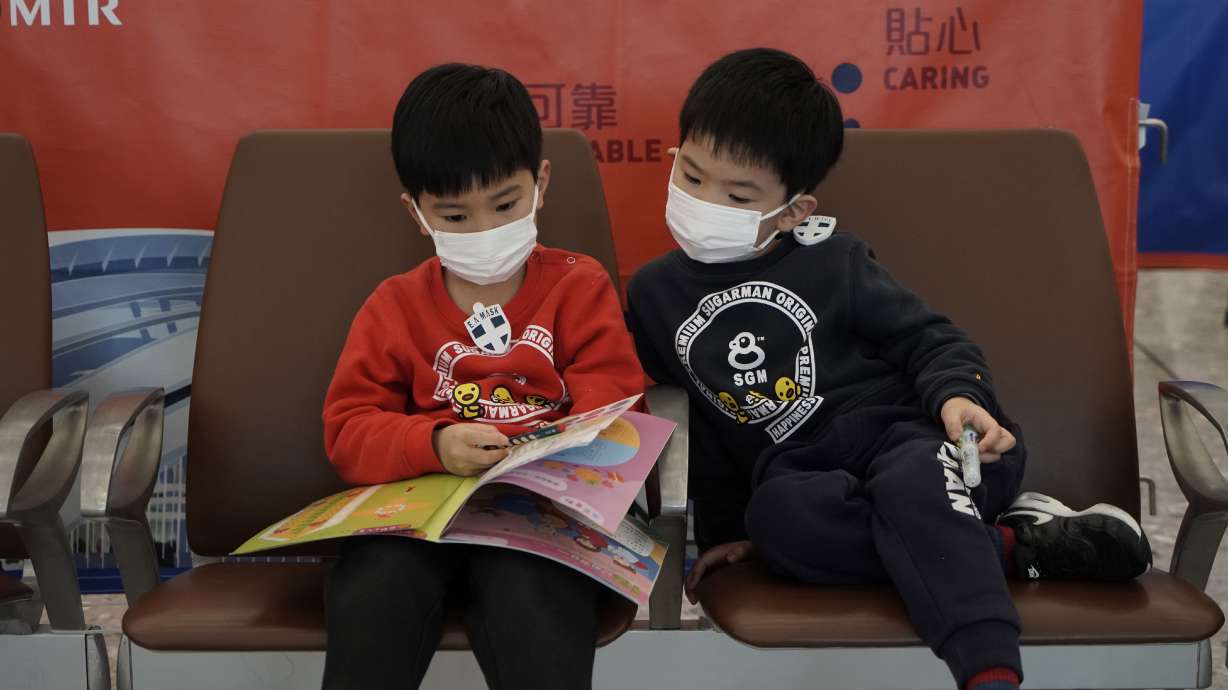Estimated read time: 4-5 minutes
This archived news story is available only for your personal, non-commercial use. Information in the story may be outdated or superseded by additional information. Reading or replaying the story in its archived form does not constitute a republication of the story.
SALT LAKE CITY — As fears over the new coronavirus continue to brew worldwide, multiple U.S. agencies have warned of scammers trying to exploit those anxieties.
Some criminals are taking advantage of people’s fears through websites, emails and texts promising prevention tips, claiming one’s neighbors have the virus, and even asking for donations, according to the Federal Trade Commission. Meanwhile, the U.S. Securities and Exchange Commission warns of investment scams claiming certain companies have found cures and thus their stocks will grow.
According to the Better Business Bureau, as face masks from legitimate sources are selling out, scammers are also marketing and selling low quality and counterfeit masks.
“Others may never deliver anything all. In the worst cases, these sites are actually a way to steal your personal and credit card information, opening you up to identity theft,” the bureau said in a statement.
With misinformation and scammers floating around, how can Utahns prepare for a possible outbreak — and how urgent is it to do so?
Of the more than 10 people tested for the new human coronavirus — now dubbed COVID-19 — nobody in Utah has tested positive for it, and no one else is currently undergoing testing, according to Utah Department of Health spokeswoman Charla Haley. As of now, people should only wear face masks if they’re taking care of someone who has the virus, Haley said.
Though current risk in Utah might be low, it’s a good idea to prepare in case that changes, said Wade Mathews, Be Ready Utah manager. And many of the preparations one can make for the coronavirus match those needed in any emergency that could affect the Beehive State.
“It’s important to understand all of the risks where we live, not just the ones that seem scary,” Mathews said.
Among potential state disasters, Utah also experiences flooding, wildfires and earthquakes.
“Knowing the relative risk is very important and yes, being ready for them all the time. ... Preparedness is just common sense,” Mathews said.
He urged people to prepare with an at least 14-day supply of food, water and medications. N95 masks, or dust masks, are also good to have on hand as they can filter out most harmful particulate matter, Mathews said.
The Department of Homeland Security also urges people to regularly check their prescription medication supply to make sure they have enough on hand should a pandemic occur, as well as other health supplies. The agency also says people should store electronic versions of their health records from doctors, hospitals, pharmacies and other sources.
In any pandemic, the protective action is social isolation — which is already happening through quarantine measures in areas with cases reported, Mathews said.
If an outbreak hits Utah, he said people should stay home and wash their hands — essentially, use basic commonsense hygiene practices. A good communication plan between family members and loved ones is also important in case of any emergency.
“We always need to be prepared. That’s part of just what we’re trying to create as a culture of preparedness here in Utah, and in the country. That’s one of our goals at the state Division of Emergency Management, and one of FEMA’s goals, is creating a culture of preparedness,” Mathews said.
When emergencies or disasters happen internationally, they get many people thinking about whether they’re prepared.
“It’s an eye-opener. Really, what these types of things are, are an eye-opener for us. When an earthquake happens, a major earthquake in Haiti or down in South America, it’s a reminder to us yes, they do happen. They cause damage, they cause injury, and they cause death,” Mathews said.
“So we’ve been very fortunate not to have a lot of those types of emergencies here in Utah, but when they do happen around us in the world, we do need to recognize that they can happen here. And it’s a good reminder to go out and start storing food and water, and medication, and your disaster kits,” he said.
“So even if people are using this coronavirus situation to get better prepared, that’s great.”
One Utahn who was quarantined on a cruise ship in Japan has been hospitalized and confirmed to have coronavirus. Melanie Haering, wife of the man hospitalized, said on Friday that she also hoped to be tested.
Fifteen U.S. cases of the coronavirus have been confirmed, according to the Associated Press.
Mathews encouraged people to visit bereadyutah.gov for more emergency preparedness information. The Be Ready Utah Expo will also take place March 13-14 in Sandy and is open to the public. For more information, including cost, visit utah.gov/beready/prepare-conference.
To avoid scams, the Federal Trade Commission urges people not to click on links from unknown sources, to do homework on any fundraisers before donating, and ignore online offers for vaccinations.










